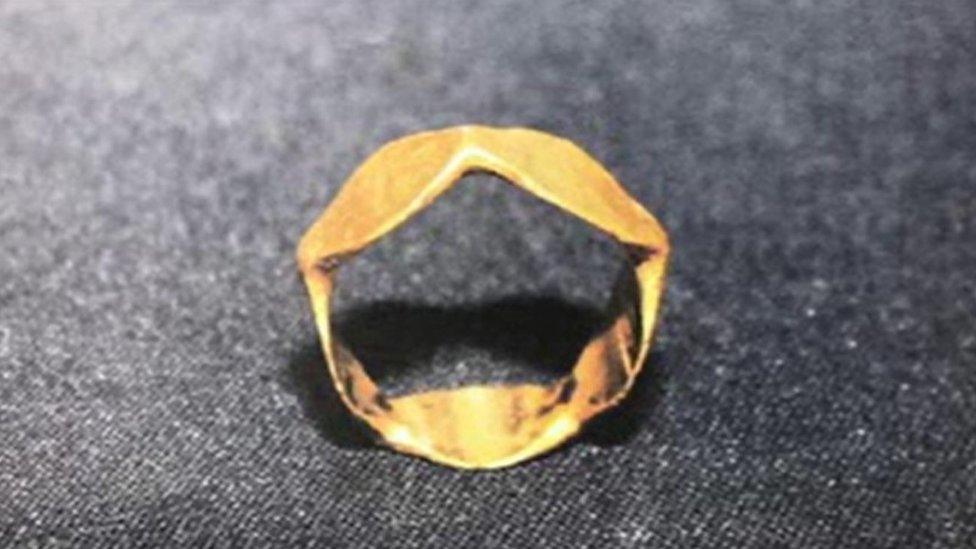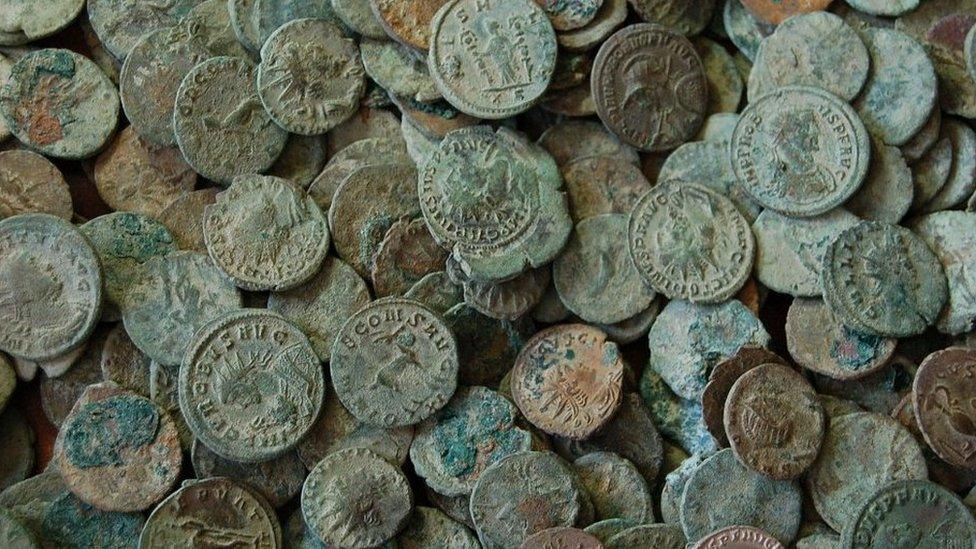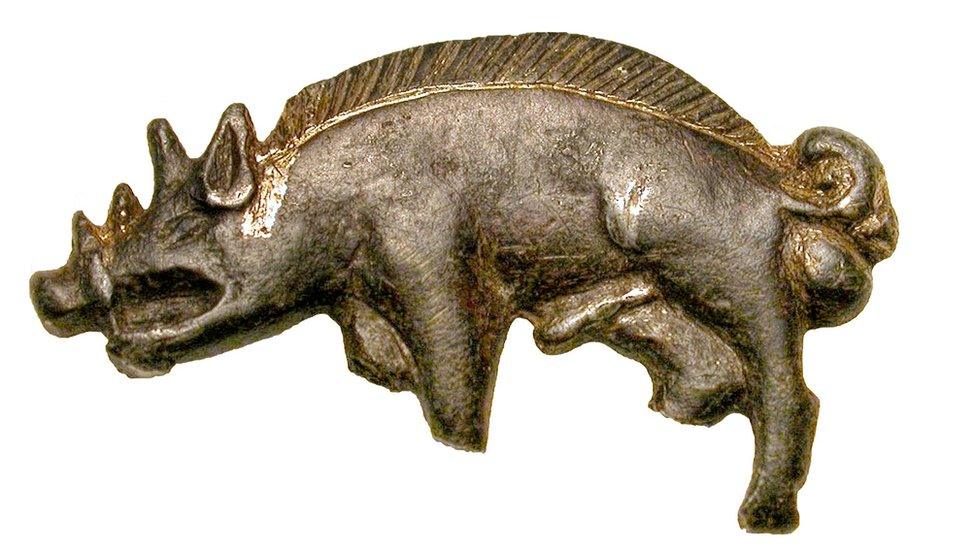Delays placing heritage at risk, metal detectorist warns
- Published

Pete Beasley handed over a gold Norman ring which the British Museum still has two years later
A metal detectorist says delays in deciding the fate of rare finds have led to a black market in our heritage.
Pete Beasley, an enthusiast from Hampshire, said it was taking years for discoveries to be processed and as a result some people had stopped handing their finds to the authorities.
The British Museum said the process was taking longer because of Covid restrictions.
Experts say our heritage is at risk if historic finds are not shared.
The Portable Antiquities Scheme, which was launched in 1997, records archaeological finds discovered by members of the public in England and Wales.
The public can face an unlimited fine or up to three months in prison for failing to reporting treasure.

A hoard of Roman coins were discovered by Dave Crisp, from Wiltshire in April 2010
Mr Beasley handed a pure gold Norman ring into the Finds Liaison Office in Winchester two years ago, that has yet to be returned.
"This takes forever and it shouldn't, these are experts. It should take weeks rather than two or three years," he said.
However, a spokeswoman for the British Museum said the process of dating the ring had not been straightforward.
It was initially thought to be Viking but staff noticed it could be Roman in date which meant it needed to be looked at by curators again.
"There's a lot of misconceptions around metal detecting amongst the general public so we're really keen to combat this and encourage best practice of reporting any finds discovered," the spokeswoman said.

The white boar was the king's personal emblem and silver gilt boars were made for his knights and nobles
"The treasure process is quite a tricky one," she added.
But Mr Beasley warned unless the system was fixed people would stop handing finds over and sell them on the black market instead.
Jenny Durrant, finds liaison officer for Hampshire, said that was illegal and also wrong.
"This is the history of all of us, it's not just one person's story that they're uncovering and keeping for themselves.
"They're sharing it with other people and recording things, either treasure or other finds on this national scheme which means everyone can appreciate them and understand the history of their area."
The British Museum has a network of 40 finds officers who work as a team.
One of the most significant finds was a boar badge found at the site of the Battle of Bosworth in Leicestershire where King Richard III famously lost his life in the War of the Roses.
The British Museum said it was likely to have been lost by a member of the king's personal household, and its discovery moved the epicentre of the battle about 3km (1.8miles) from where it was previously thought.

Follow BBC South on Facebook, external, Twitter, external, or Instagram, external. Send your story ideas to south.newsonline@bbc.co.uk, external.